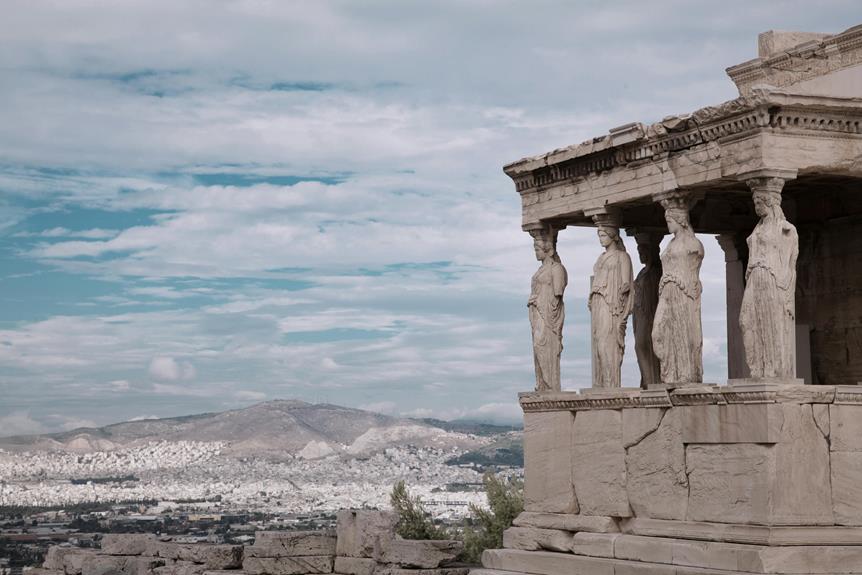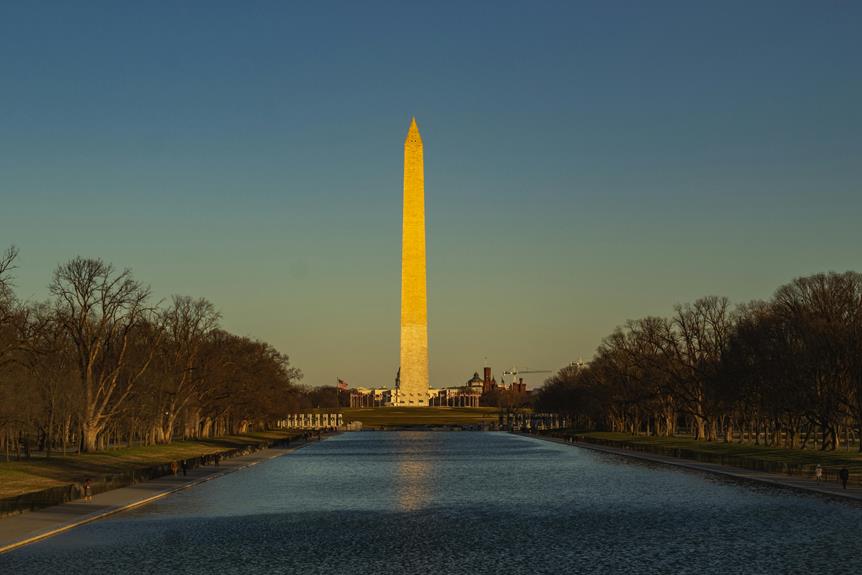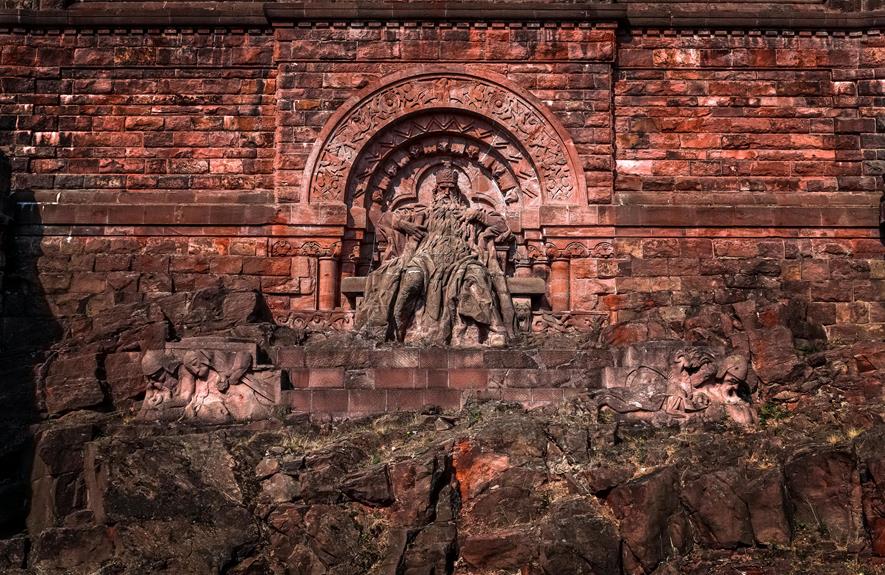Robben Island, a place etched with the somber history of apartheid, serves as a stark reminder of the struggles endured by those who fought against oppression. Beyond its role as a prison, this island encapsulates a narrative of resilience and unwavering spirit that continues to echo through the halls of time. Exploring its grounds offers a poignant glimpse into a chapter of South Africa's past that shaped its present and future. A journey to Robben Island reveals not just a tale of confinement but a confirmation to the enduring quest for freedom and equality, leaving visitors with a profound sense of reflection and contemplation.
Key Takeaways
- Robben Island: Historic site of apartheid imprisonment.
- Nelson Mandela spent 18 years incarcerated.
- Offers tours, exhibitions, and nature walks.
- Conservation efforts focus on marine protection.
- Accessible by ferry from V&A Waterfront, Cape Town.
Historical Significance
Robben Island holds immense historical significance as a place where political prisoners, including Nelson Mandela, were incarcerated during the apartheid era in South Africa. This island, located off the coast of Cape Town, has left an impactful legacy on the struggle against oppression and the fight for freedom. The cultural significance of Robben Island lies in its role as a symbol of resistance and resilience in the face of adversity.
The history of Robben Island dates back to the 17th century when it was used as a place of banishment, isolation, and imprisonment. However, it is most famously known for its time as a political prison during the apartheid regime. The harsh conditions endured by prisoners, coupled with their unwavering commitment to justice and equality, have cemented Robben Island's place in the annals of history.
The most prominent figure associated with Robben Island is Nelson Mandela, who spent 18 of his 27 years in prison on the island. Mandela's transformation from prisoner to president encapsulates the triumph of the human spirit over oppression. His release from Robben Island in 1990 marked a turning point in South Africa's history and paved the way for a new era of democracy and equality.
Prison and Political Dissidents
The incarceration of political dissidents on the island of Robben holds a significant place in the annals of history due to its role in shaping the fight against oppression and the quest for political freedom in South Africa. Robben Island served as a place of confinement for those who dared to resist the unjust apartheid regime, enduring harsh prison conditions as a consequence of their unwavering commitment to the cause of freedom.
Political dissidents, including key figures like Nelson Mandela, were subjected to brutal treatment and deplorable living conditions during their time on Robben Island. The prison conditions were designed to break their spirits and suppress their voices, yet these individuals stood resilient, becoming symbols of resistance and perseverance in the face of adversity.
Within the confines of Robben Island, a breeding ground for defiance emerged. The shared suffering and collective resilience of the prisoners gave rise to powerful resistance movements that transcended the physical barriers of their imprisonment. Through clandestine discussions, forbidden teachings, and acts of solidarity, these political dissidents defied their oppressors and kept the flame of freedom burning bright.
The legacy of the prison and political dissidents on Robben Island serves as a poignant reminder of the human spirit's capacity to endure, resist, and triumph over injustice. It stands as a tribute to the indomitable will of those who sacrifice their freedom in the pursuit of a more just and equitable society.
Nelson Mandela's Incarceration
Nelson Mandela's incarceration on Robben Island symbolized the enduring struggle against oppression and the unwavering commitment to the cause of political freedom in South Africa. Mandela, along with other anti-apartheid activists, spent 18 of his 27 years in prison on Robben Island. This period of imprisonment had a profound impact on activism and the resistance against apartheid.
Mandela's time on Robben Island was marked by harsh conditions and brutal treatment by the apartheid regime. However, even in confinement, Mandela continued to advocate for equality and justice. His resilience and unwavering dedication to the anti-apartheid movement inspired generations of activists both within South Africa and globally. Mandela's ability to unite people from diverse backgrounds in the fight against oppression was a reflection of his leadership and vision for a free and equal society.
The significance of Mandela's incarceration on Robben Island extends beyond his personal sacrifice. It became a symbol of the broader struggle against apartheid, highlighting the injustices faced by millions of South Africans. Mandela's ability to endure and emerge from prison with a message of forgiveness and reconciliation further solidified his legacy as a beacon of hope and a driving force for change. His time on Robben Island remains a powerful reminder of the resilience of the human spirit in the face of adversity.
Tourist Attractions and Activities
Tourists visiting South Africa's Robben Island can explore a variety of historical sites and engage in activities that offer insight into the country's rich cultural heritage and tumultuous past. The island, known for its significance in the fight against apartheid, offers visitors a chance to dig deeper into South Africa's history through various outdoor adventures and cultural experiences.
- Prison Tours: One of the most popular activities on Robben Island is the guided tour of the prison facilities where political prisoners, including Nelson Mandela, were held during the apartheid era. Visitors can walk through the prison cells, communal areas, and learn about the challenging conditions endured by the inmates.
- Historical Exhibitions: The Robben Island Museum showcases exhibitions detailing the island's history, the struggle against apartheid, and the lives of the prisoners. These displays provide a detailed overview of the island's role in shaping South Africa's trajectory towards democracy.
- Nature Walks: In addition to its historical significance, Robben Island offers stunning natural landscapes that can be explored through nature walks. Visitors can witness diverse flora and fauna, enjoy scenic views of the surrounding ocean, and appreciate the peaceful ambiance of the island.
These activities not only offer tourists a chance to engage in outdoor adventures but also provide them with immersive cultural experiences that highlight the resilience and spirit of the South African people.
Conservation and Preservation Efforts
Efforts towards conservation and preservation on Robben Island encompass a multifaceted approach aimed at safeguarding its natural and cultural heritage for future generations. The conservation initiatives on the island are characterized by a strong emphasis on community involvement and the implementation of sustainable practices. By actively engaging the local community, these efforts not only protect the environment but also foster a sense of ownership and responsibility among the residents.
To provide a clearer picture of the conservation and preservation efforts on Robben Island, the table below outlines some key initiatives and strategies:
| Conservation Initiatives | Description | Impact |
|---|---|---|
| Marine Protected Areas | Designated zones to safeguard marine life | Preserves biodiversity |
| Renewable Energy Projects | Implementation of solar and wind energy | Reduces carbon footprint |
| Cultural Heritage Programs | Preservation of historical sites and stories | Maintains cultural identity |
| Waste Management Systems | Recycling and waste reduction practices | Minimizes environmental impact |
| Eco-Tourism Development | Promoting sustainable tourism activities | Generates income for conservation efforts |
These initiatives collectively contribute to the sustainable management of Robben Island, ensuring that its unique ecosystem and rich history are conserved for generations to come. By actively involving the community and adopting sustainable practices, Robben Island sets an example of responsible conservation that resonates with visitors seeking to experience freedom in harmony with nature.
Visitor Information and Practical Tips
In understanding the conservation and preservation initiatives on Robben Island, it is crucial to provide visitors with essential information and practical tips to enhance their experience while respecting the island's natural and cultural significance.
When planning a visit to this historically significant island, consider the following:
- Transportation Options: Visitors can reach Robben Island by taking a ferry from the V&A Waterfront in Cape Town. The ferry ride offers stunning views of the ocean and the city skyline, adding to the overall experience of the journey. It is advisable to book ferry tickets in advance due to high demand, especially during peak tourist seasons. Ticket prices vary depending on the type of experience chosen, such as standard visits, private tours, or special events.
- Guided Tours and Audio Guides: Upon arrival on Robben Island, visitors have the opportunity to join guided tours led by knowledgeable ex-political prisoner guides. These tours provide valuable insights into the history and significance of the island, including the prison where Nelson Mandela was held captive. Additionally, audio guides are available in multiple languages, offering a self-paced exploration of the island's landmarks and stories.
- Practical Tips: To make the most of your visit, wear comfortable shoes and clothing suitable for walking and varying weather conditions. Carry water, sunscreen, and a hat, as shade can be limited on the island. Respect the rules and regulations in place to preserve the island's heritage and ensure a memorable and respectful experience for all visitors.
Frequently Asked Questions
Is There a Haunted History Associated With Robben Island?
Ghost stories and paranormal activity are often linked to locations with a tumultuous past. Robben Island, known for its historical significance, has also been associated with haunted tales. Reports of unexplained phenomena and eerie experiences have circulated over the years.
While these stories may vary in credibility, they contribute to the mystique surrounding the island. Such narratives can offer a unique perspective on the intersection of history and the supernatural.
What Impact Did Robben Island Have on the Local Community?
The impact of Robben Island on the local community was profound, shaping community development and fostering social change. Through the experiences and struggles of individuals associated with the island, a narrative of resilience and resistance emerged, influencing the broader community.
The island served as a crucible for activism and solidarity, leading to a heightened awareness of human rights and collective empowerment within the local community, ultimately contributing to a legacy of freedom and justice.
Are There Any Hidden Tunnels or Secret Passages on the Island?
Explorers often seek hidden tunnels and secret passages, drawn to mysteries awaiting discovery. Such enigmatic features not only fascinate but also challenge our understanding of a place's history and purpose.
Uncovering these concealed pathways can provide a glimpse into the past, shedding light on forgotten narratives and untold secrets. The allure of uncharted territories fuels our curiosity, inspiring us to explore further into the unknown, unraveling the enigmas that lie beneath the surface.
How Has the Wildlife on Robben Island Evolved Over Time?
Evolutionary changes in wildlife populations are influenced by a myriad of factors including habitat alterations, climate variations, and human interventions. Biodiversity trends reflect these dynamic shifts, showcasing adaptations and extinctions over time.
Understanding the intricate web of interactions within ecosystems provides valuable insights into the evolving nature of wildlife communities. By analyzing these trends, researchers can gain a deeper appreciation for the resilience and vulnerability of species in response to environmental pressures.
Can Visitors Participate in Any Community Outreach Programs on the Island?
Engaging in community service programs during travel provides a unique opportunity for cultural exchange and personal growth. Many destinations offer visitors the chance to participate in local outreach initiatives, fostering a deeper connection to the community and leaving a positive impact.
These programs can range from educational workshops to environmental conservation efforts, allowing travelers to contribute meaningfully while gaining insights into different ways of life.
Conclusion
To wrap up, Robben Island stands as a stark reminder of South Africa's tumultuous past, serving as a poignant symbol of resistance and resilience.
Through guided tours and immersive experiences, visitors can explore the island's history and gain a deeper understanding of the struggle for equality and justice.
The conservation and preservation efforts on the island guarantee that its dark past is not forgotten, offering a powerful and thought-provoking experience for all who visit.


